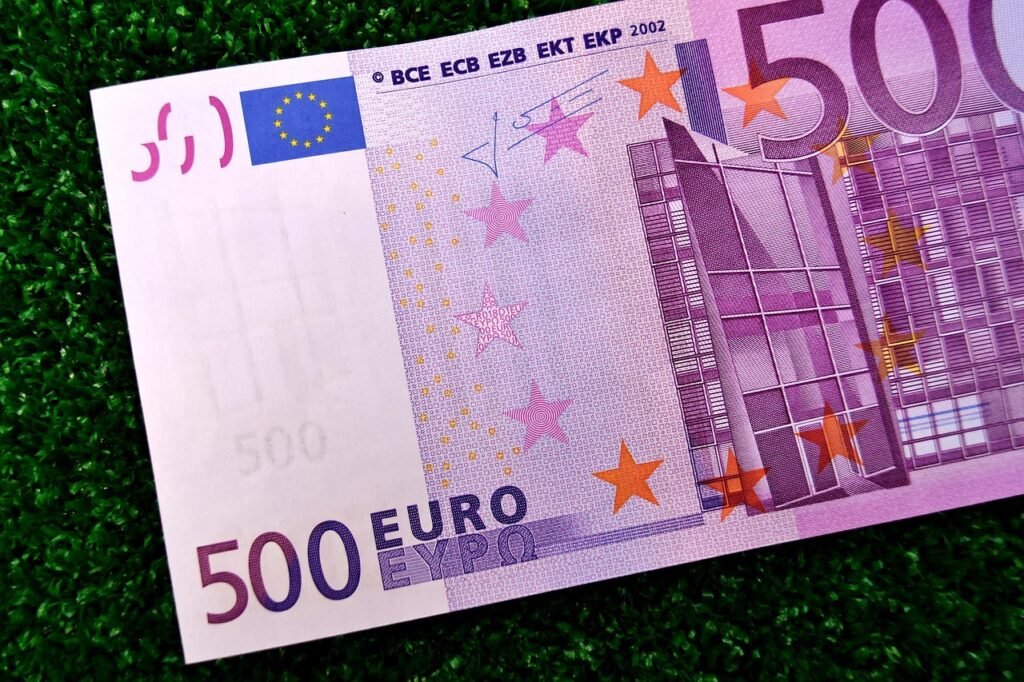The concept of a Digital Euro has rapidly gained attention in the financial and political spheres of Europe. As the European Central Bank (ECB) explores the creation of a central bank digital currency (CBDC), discussions about its potential benefits and drawbacks have come to the forefront.
But what exactly is the Digital Euro? What could it mean for businesses, consumers, and the broader EU economy—and why is centralized control such a key factor?
💡 What Is the Digital Euro?
The Digital Euro is a proposed electronic form of the euro issued directly by the European Central Bank. Unlike cryptocurrencies such as Bitcoin, it would be centrally controlled, regulated, and backed by the ECB.
Its main purposes include:
- Offering a safe, fast, and universal payment option across the eurozone
- Strengthening monetary sovereignty in the face of increasing private and foreign digital currencies
- Supporting the ongoing digitalization of finance and commerce
The digital euro would exist alongside cash, not replace it, ensuring that consumers can continue to choose their preferred method of payment.

🔍 Key Opportunities for the European Union
1. Improved Financial Inclusion
A digital euro could help unbanked or underbanked populations participate more fully in the economy by offering a secure, easily accessible payment method—especially through mobile devices.
2. Faster and Cheaper Transactions
By reducing the reliance on intermediaries (like commercial banks), the digital euro could streamline transactions, lower transfer costs, and enhance efficiency in domestic and cross-border payments.
3. Monetary Sovereignty
As private tech giants (e.g., Meta’s Diem project) and foreign powers develop digital currencies, the EU faces pressure to maintain control over its monetary system. The digital euro would strengthen EU autonomy in this domain.
4. Combating Financial Crime
With proper design, a digital euro could help limit fraud, money laundering, and tax evasion through built-in transparency, while still respecting privacy through selective anonymity.
5. Boosting Innovation and Trust
A well-regulated digital currency can enhance public trust in digital finance and open doors for new services and fintech products across Europe.

⚠️ What Are the Potential Drawbacks?
Despite the promise, the digital euro also presents several significant challenges:
1. Privacy Concerns
One of the biggest fears surrounding a central bank digital currency is government overreach. Critics warn that increased surveillance of transactions may infringe on personal privacy.
2. Disintermediation of Banks
If citizens hold digital euros directly with the ECB, traditional banks could lose deposits—potentially weakening their role in lending and economic support, especially during financial downturns.
3. Cybersecurity Risks
As a digital infrastructure, the system must be built to withstand cyber threats and guarantee 24/7 reliability. A breach could undermine public trust and disrupt financial markets.
4. Slow Adoption
Consumer skepticism, combined with lack of digital literacy or infrastructure in certain regions, could result in slower-than-expected adoption, limiting the currency’s effectiveness.
5. Cross-border Tensions
Global CBDC efforts are still fragmented. Without international coordination, incompatible standards may lead to complications in cross-border transactions and increased economic fragmentation.

🛡 Why EU Control Matters
A centrally issued and controlled digital euro allows the European Union to enforce standards, protect consumers, and ensure macroeconomic stability. Unlike decentralized cryptocurrencies, the digital euro would:
- Be tied to existing monetary policy tools
- Offer guaranteed convertibility to physical euros
- Allow the ECB to maintain inflation targets and economic interventions
Moreover, EU-wide legal and technical frameworks will be necessary to govern its use—creating new opportunities for EU-wide financial integration and economic resilience.

🧭 What It Means for European Entrepreneurs
For business owners and entrepreneurs across Europe, the digital euro could:
- Enable faster B2B transactions
- Lower international transfer costs within the EU
- Open new digital payment systems that reduce friction and fees
Still, it’s important for businesses to prepare for these shifts by modernizing their digital infrastructure, securing payment gateways, and building adaptable, user-friendly platforms.
🚀 Final Thoughts
The Digital Euro is more than just a payment tool—it represents a turning point in how Europe envisions sovereignty, trust, and innovation in finance. While concerns remain, the potential benefits for citizens, businesses, and the broader EU economy are significant.
In a digital-first future, your business’s online presence will matter more than ever. If you’re ready to modernize your brand, visit Rakuzan.eu for professional website solutions tailored to European businesses.
Need reliable hosting and domains? Try Hostinger with our exclusive partner discount.
Disclaimer: This article is for informational purposes only and does not constitute financial, tax, or investment advice. Readers should consult with a licensed professional before making any financial or business decisions.





